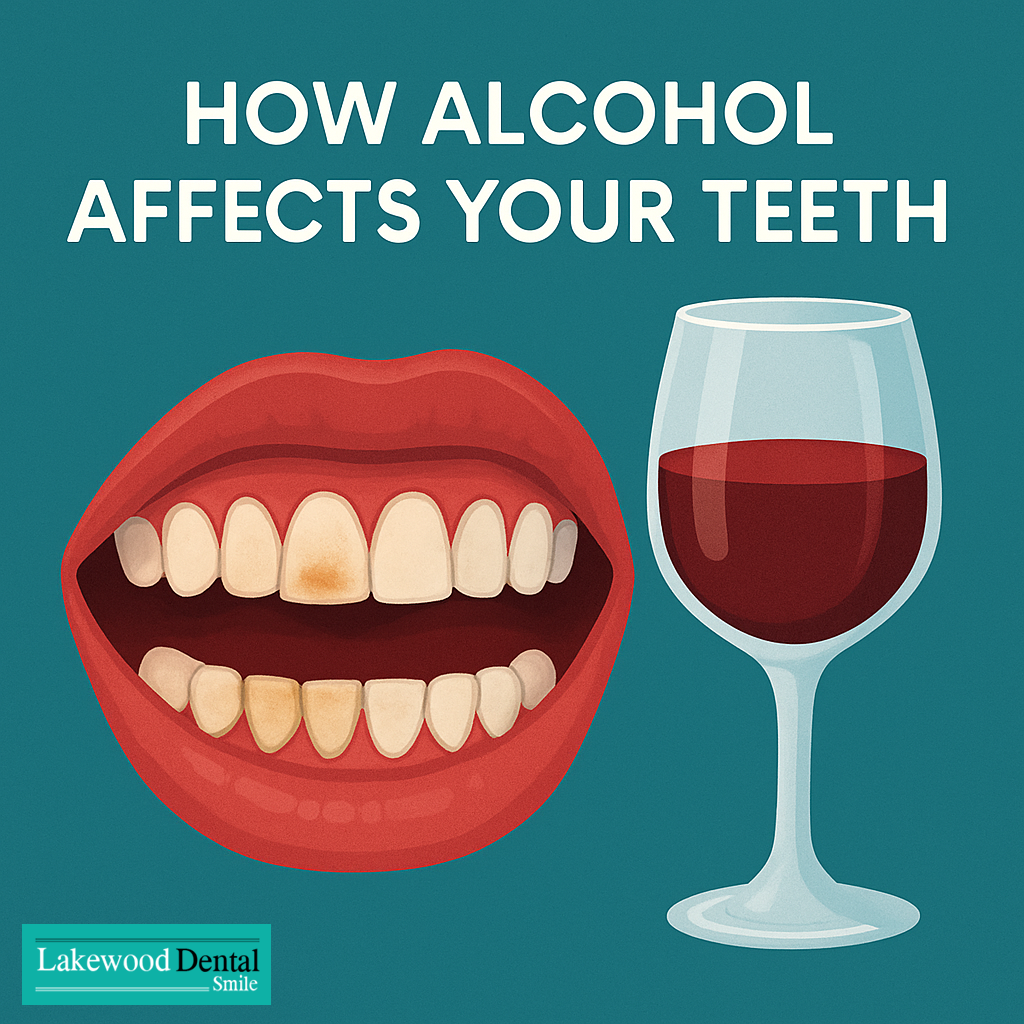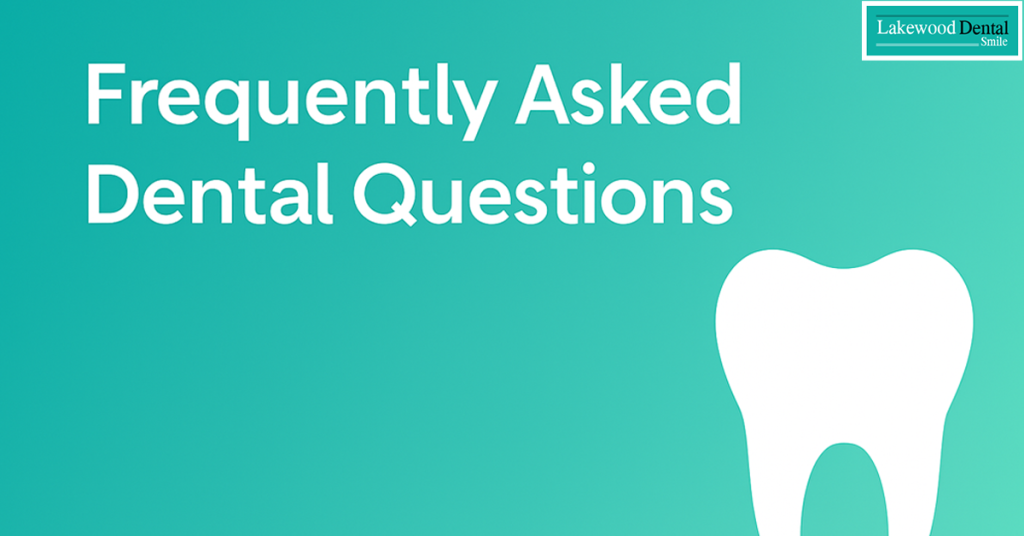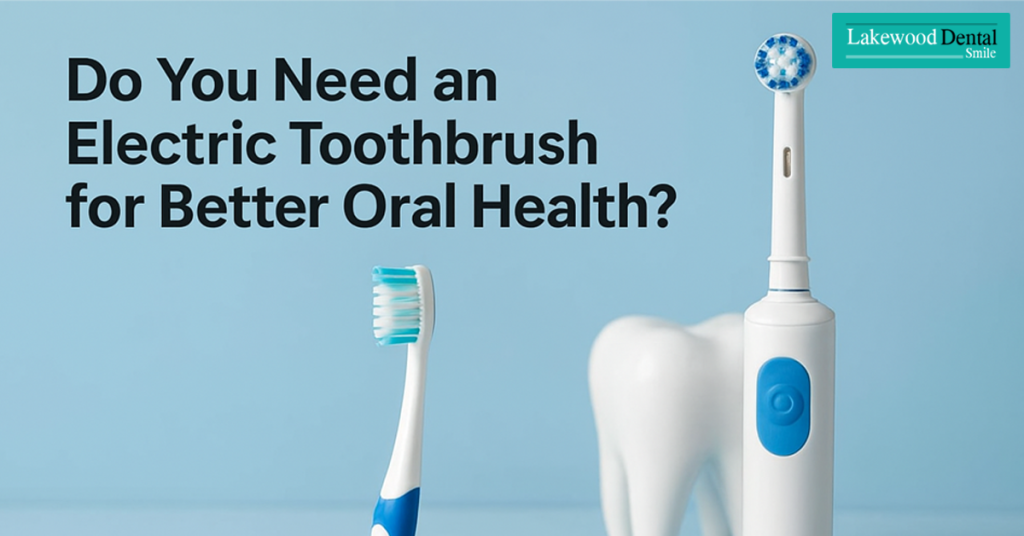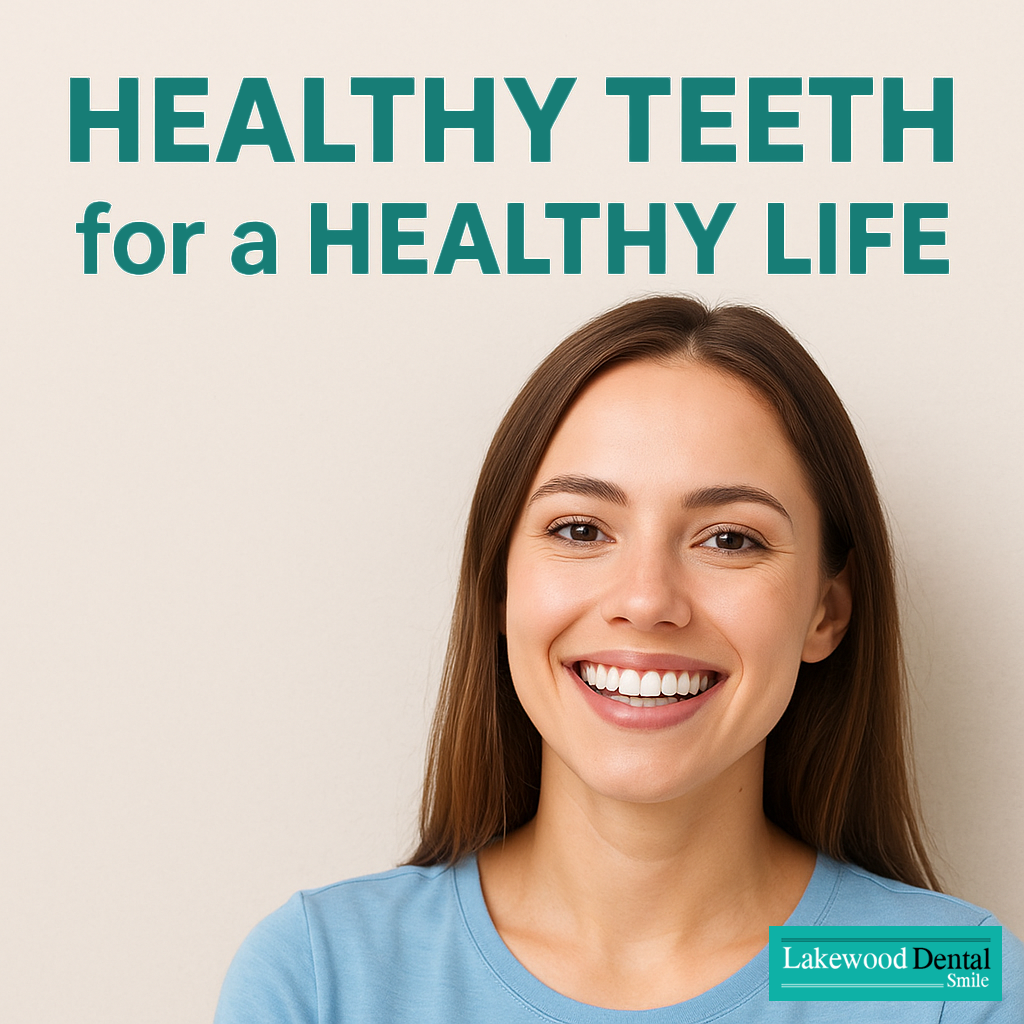Understanding how alcohol affects your teeth is essential for maintaining lifelong oral health. While occasional drinking might not cause immediate damage, frequent or heavy alcohol use can harm your gums, enamel, and smile over time. Even moderate consumption can gradually affect the natural protection of your teeth.

🍷 Alcohol’s Impact on Oral Health
Alcohol is acidic by nature, and when consumed regularly, it weakens tooth enamel. Research shows that people who drink heavily are more likely to experience gum disease, tooth decay, and oral infections. However, even moderate drinkers should learn how alcohol affects your teeth to prevent subtle long-term damage. Alcohol also reduces saliva production, which is essential for washing away food particles and maintaining a healthy pH in your mouth.
🦠 Plaque Buildup and Gum Disease
People who drink excessively tend to develop more plaque on their teeth. Plaque harbors bacteria that irritate gums and cause inflammation. When left untreated, this can progress into gingivitis or periodontal disease. Gum disease isn’t just a cosmetic issue—it can eventually lead to tooth loss and jawbone damage. That’s why regular dental checkups and cleanings are vital if you consume alcohol frequently.
🌈 Tooth Staining and Discoloration
Another visible way how alcohol affects your teeth is by staining the enamel. Drinks like red wine, dark beer, or whiskey contain pigments and acids called chromogens, which attach to the enamel surface. Over time, this dulls the natural brightness of your teeth. Using a straw for mixed drinks or rinsing your mouth with water after drinking can help reduce the contact between alcohol and enamel, keeping your smile brighter for longer.
If you mix alcohol with cola or sugary sodas, staining becomes even more severe. The dark color and sugar accelerate discoloration and enamel erosion. Try alternating alcoholic beverages with water or sugar-free drinks to lessen the damage.
💧 Alcohol and Dry Mouth
Many people overlook the fact that alcohol is a natural dehydrator. It reduces saliva production, causing a dry mouth. Saliva plays an essential role in washing away bacteria and neutralizing acids. A dry mouth increases the risk of cavities, bad breath, and enamel wear. To protect your teeth, drink plenty of water alongside alcohol and use an alcohol-free mouthwash to restore moisture.
🍋 Acidic Mixers and Enamel Erosion
Adding citrus flavors like lemon or lime to your cocktails may seem harmless, but these fruits are highly acidic. Over time, acidity softens enamel, making teeth more sensitive and vulnerable to decay. Similarly, chewing ice from alcoholic drinks can lead to micro-cracks or chipped teeth. These tiny breaks create openings for bacteria, accelerating decay.
If you enjoy citrus-based drinks, rinse your mouth with plain water afterward and wait at least 30 minutes before brushing — brushing too soon can worsen enamel wear.
⚖️ Balancing Alcohol with Healthy Habits
It’s unrealistic to expect everyone to stop drinking entirely. However, moderation and smart dental habits can greatly reduce harm. After drinking, rinse with water or a fluoride mouthwash, avoid sugary mixers, and keep up with daily brushing and flossing. Scheduling professional dental cleanings twice a year will help counteract the effects of alcohol on your mouth.
🪥 When to See a Dentist
If you notice tooth sensitivity, discoloration, or gum bleeding after frequent alcohol consumption, consult a dentist promptly. These may be early signs of enamel erosion or gum disease. Addressing such issues early can prevent more serious complications like infections or tooth loss.
🌟 Final Thoughts
Understanding how alcohol affects your teeth helps you make smarter choices for your oral health. From discoloration and dryness to gum irritation, alcohol’s impact can be gradual yet significant. Adopting protective habits and staying hydrated can limit the damage.
For those in Dearborn, Michigan, regular professional care can make a difference. Scheduling a dental checkup at Lakewood Dental Smile ensures personalized advice, preventive treatments, and long-term support for a healthier, brighter smile.




